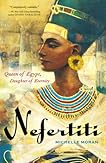
L.Gen. the Hon. Roméo Dallaire (Ret’d), was the commander of the UN mission to Rwanda, there he experienced first-hand the horrors committed during the 1994 genocide. In his memoirs “Shakes Hands with the Devil”, he highly criticised and exposed the failures of the international community. Mr. Dallaire is known to be a strong humanitarian, an advocate of human rights and has dedicated his life to the cause for which he has been recognized and has received numerous awards.
In his second book, he reveals another important cause he is equally dedicated to: the fight to eradicate the use of child soldiers.
From the opening pages it is evident that Mr. Dallaire is very affected and still haunted by the memories of the Rwanda genocide. He relates how the life of a child is drastically altered when he is abducted, brainwashed and forced to act as a combatant in a rebel army. Some as young as nine are taken captive, drugged and forced to witness and in some cases even slaughter their own parents. Escape is not an option, if they manage to survive all they would find is the charred remains of their past. Their fate in camps is contingent on their will to survive. They are deprived of food and sleep, rendering them totally dependent on their captors for survival while undergoing a crude form of guerrilla tactics before they are often sacrificed in combat. The fate of young girls is even worse, they are not only trained as soldiers they are often used as sex slaves and their chance of a respectable marriage becomes a dream of the past and unthinkable. In post war, these children are so psychologically damaged they are rarely able to achieve a place in society.
Since 1994, the problem of child combatants has spread to many impoverish populations. The children are an easy target for recruiters in societies plagued with a high proportion of unemployment, little social order, high mortality and a rocketing HIV rate.
Although “They Fight like Children, They Die like Children”, is a troubling and touching account, I find, the narrative has less passion and drama then his first book. Most of the chapters are informative and interesting; there are a few in which the narrative changes. One of the chapters expresses the thoughts of one of these children in battle to the point of his demise by a U.N. soldier. The next chapter describes the thoughts of the Blue beret soldier facing this child. These two chapters appeared to be unsuccessfully dumbed down to attract a younger audience. The last chapter, a long and never ending cry to rally into action the younger readers in my opinion turned into an everlasting rant. The mix of styles created an awkward read.
I may not have appreciated the presentation at its fullest; nevertheless, Mr. Dallaire’s quest is most admirable. His point is well taken, all of us adult and young must shoulder the responsibility


















No comments:
Post a Comment